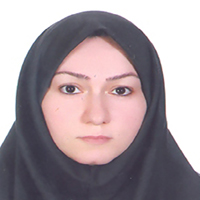Criticism as a Possible Condition in Writing and Speech: A Theoretical Reflection on the Presuppositions Covering Whyness and Howness of the Event of Texts
Criticism and its types have been referred to as judgment, evaluation, identification, analysis, review, interpretation, and the like, all of which regard criticism as an interrogative encounter with produced text aiming to explore and examine it. This is while the purpose of this article is to emancipate criticism from the common posterior definitions and as the result to create a fundamental understanding based on text criticism as a priori act in the production process. For this purpose, this article focuses on pre-linguistic and meta-linguistic elements in terms of a non-structural approach and a context for actual production of text as possible conditions. These are meta-historical data which contain the whyness and howness of text formation. Possible conditions are objective and meta-linguistic preconditions. They are different from explanation and interpretation as the realm of mind. Possible conditions are at the heart of historical theory (Historik) and are in relation with long-term processes, playing role in text from the beginning of its formation. Observing possible conditions, as meta-textual conditions make the text actual. It is while criticism, as a possible condition in the creation of text and as a priori and beyond the linguistic narration and hermeneutic features, protects and supports it against any kind of posterior review and judgment. This article attempted to look at the criticism from a different perspective. This led to the extraction of results different from the common ones and to the context required for the actual production of the text event.
-
American strategic policy-making, Iran's strategic policy-making, Southwest Asia, the national role of Iran's regional power, the national role of the regional hegemon of America.
Seyd Taghi Hashemi, Ebrahim Mottaghi *, Siraki
Political Science, Winter 2024 -
Strategic Policymaking of the Islamic Republic of Iran in Response to U.S. Actions in Southwest Asia (2001–2021)
Seyd Taghi Hashemi, Ebrahim Mottaghi *, Siraki
Political Science, Winter 2024



